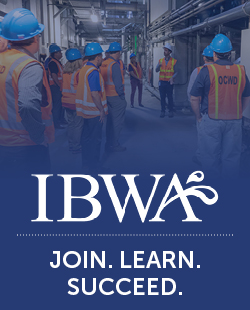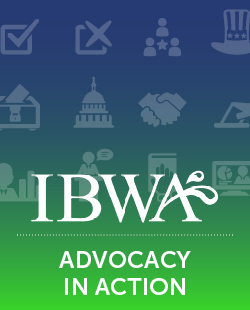IBWA Opposes Maine Withdrawal Tax
IBWA Opposes Maine Withdrawal Tax
IBWA Remarks for Maine Joint Natural Resources Committee
Re: LD 1472
Tuesday, April 8, 2003, Augusta, Maine
Good afternoon and thank you for allowing me to speak to you on LD 1472. My name is Troy Flanagan and I am here representing the International Bottled Water Association. IBWA represents U.S. and international bottlers, distributors and suppliers of bottled water, including five companies in Maine. IBWA works closely with the U.S. Food and Drug Administration, which regulates bottled water as a packaged food product, and state governments to set stringent standards for safe, high quality bottled water products.
IBWA also focuses much attention on ensuring that its members are good stewards of the environment. By way of our Groundwater Management Policy, IBWA promotes the regulation of groundwater withdrawals through science-based regulation applied equally to all users of the resource. And the bottled water industry knows better than anyone the importance of being good stewards of this resource. It is not only in the best interest of the environment, but it makes good business sense to use care when relying on groundwater for your operations.
LD 1472 does not treat all groundwater users equally. The concept of this legislation seeks to punish those who draw off an aquifer for commercial uses, while exempting residential and other uses. Theoretically, a manufacturer of some product could just as easily use a municipal source for their water, create a good and ship it out of the state. This use will put an identical strain on the aquifer, as that is where the city ultimately gets it water.
It is also unclear how commercial water uses differ from agricultural uses. Water is used in farming operations to cultivate a product, such as potatoes, that will likely be distributed and sold out of state, much to the benefit of the Maine’s economy. The aquifer does not distinguish the difference between a commercial withdraw and other uses, why should the law?
In other instances, severance fees, such as suggested in this legislation, are imposed on resources extracted from a state that are not renewable. In these situations, the fees effectively serve as “damages” for the removal of the resource, whether it is coal, natural gas, or some other resource. However, applying this type of fee to water does not follow this logic because water is indeed a renewable resource. This idea in comparable to the taxing of trees harvested in Maine. If properly managed, water will be a resource that both residential and commercial users can rely upon for many years to come.
For instance, water withdrawn from an aquifer in Maine may be bottled and used in Massachusetts, eventually flushed in Boston Harbor and the Atlantic Ocean. That water will then evaporate into the atmosphere and become rain, completing the hydrologic cycle of water.
A severance fee on water also makes the state of Maine stand out in a unique way. No other state imposes a similar fee on commercial water users. This type of fee will set Maine apart from the rest of the country when it comes to supporting businesses that rely on their own groundwater wells, rather than other entities that may use a public source for their operations.
I urge the committee to carefully consider the implications of the bill and withhold your support.
Thank you.
M. Troy Flanagan
Director of Government Relations
International Bottled Water Association
1700 Diagonal Road, Suite 650
Alexandria, Virginia 22314
Tel: (703) 683-5213 ext. 120
Fax: (703) 683-4074
flanagan@bottledwater.org
www.bottledwater.org


